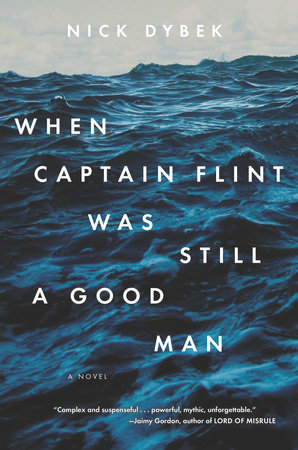READERS GUIDE
Questions and Topics for Discussion
INTRODUCTION
Every fall, the men of Loyalty Island-like their fathers and grandfathers before them-still sail from the Olympic Peninsula up to the Bering Sea to spend the winter catching king crab. Their dangerous occupation keeps food on the table but constantly threatens to leave empty seats around it.
To Cal, Alaska remains as mythical and mysterious as Treasure Island, and the stories his father returns with are as mesmerizing as those he once invented about Captain Flint before he turned pirate. But while Cal is too young to accompany his father, he is old enough to know that everything depends on the fate of those few boats thousands of
miles to the north. He is also old enough to feel the tension between his parents over whether he will follow in his father’s footsteps. And old enough to wonder about his mother’s relationship with John Gaunt, owner of the fleet.
Then Gaunt dies suddenly, leaving the business in the hands of his son, who seems intent on selling away the fishermen’s livelihood. Soon Cal stumbles on evidence that his father may have taken extreme measures to salvage their way of life. As winter comes on, his suspicions deepening and his moral compass shattered, he is forced to make a terrible choice.
DISCUSSION QUESTIONSLoyalty Island-and more broadly, the Olympic Peninsula and the Pacific Northwest-is the very prominent backdrop to this novel. How does the region’s geography, culture and mood shape the lives of these characters and what happens to them in the course of the story?The title of the novel is taken from Robert Louis Stevenson’s Treasure Island. What role does that story play in this one, and what points about storytelling and character do you think the author evokes by juxtaposing the two works?Music is a recurring motif in the story. What role does it play in the action? How does Dybek use various songs to evoke mood and reveal character?The novel features three sons – Richard, Cal, and Jamie – who are struggling with their fathers’ legacies. How does each of them conform to, and resist, the expectations that have been laid out for them? Were you surprised at where the novel leaves each of them in the end?Richard observes that the fisherman depicted in Loyalty Island’s monument “doesn’t have a chance in hell.” What does this say about Richard, and how does it determine the events he sets in motion?Cal’s parents, Donna and Henry, seem an unlikely couple from the get-go. How does their mismatch play out in their marriage and their life in Loyalty Island? What is its legacy in Cal?At one point after Cal has discovered his father’s secret in the basement, he thinks of his parents and decides that he “wasn’t the person they’d made anymore.” Do you agree with this statement? Which parent does he more resemble? How and in what sense does he become his own person?Dybek deliberately rejects a straightforward good-versus-evil approach to the characters in the story, leaving it to the reader to judge their behavior. Whose actions seem the least and most justifiable to you?For much of the novel, Richard is literal imprisoned in the Bollings’ basement. How else does the theme of imprisonment – by class, gender, tradition, and societal expectations – play out in the novel? Are any of the characters truly free?The novel is narrated by an adult Cal, looking back from decades later. Who do you think he has turned out to be? How does his distance from the events of his adolescence color his narration of them?

